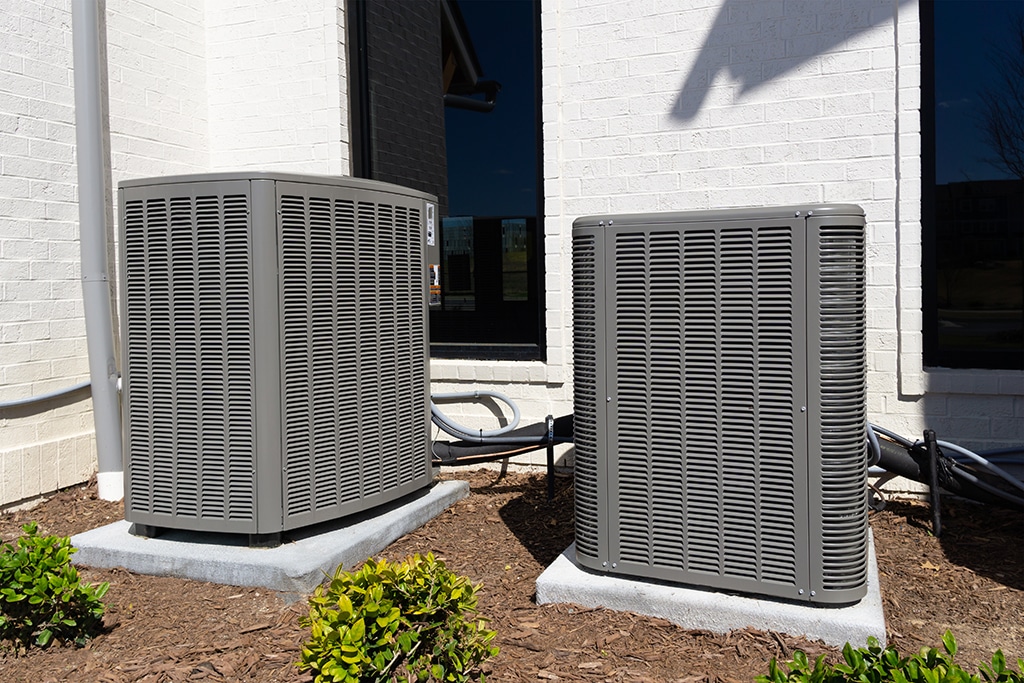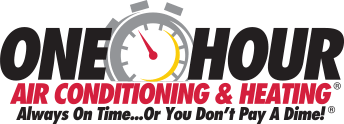
4 Signs It’s Time To Call A Heating And AC Repair Service | Dallas, TX
Summers in Dallas, TX, are hot and humid, with the daily temperature reaching 90 degrees and higher. When it’s this hot outside, most people spend more time in their air-conditioned homes to escape the heat. If your air conditioner isn’t working correctly, the temperature in your house can reach 120 degrees, increasing the risk for heat-related illnesses, such as heat exhaustion and heatstroke, significantly.
Winter days are relatively mild, with daytime temperatures in the ’50s. The temperature drops significantly at night, and when a cold front rolls in, you rely on your furnace to keep your home warm. If it’s freezing outside and the furnace isn’t working correctly, your house can get dangerously cold.
Because you rely on your HVAC system to keep your home comfortable, it’s essential that you call a professional in heating and AC repair as quickly as possible. Waiting to call a professional can affect your home’s comfort, and some problems can put your home and family at significant risk.
If your HVAC system experiences any of the following problems, a heating and AC repair company can help.
#1 Restricted Airflow
When you stand in front of a vent in your Dallas, TX home when the air conditioner runs, you should feel a powerful rush of cold air. When the furnace runs, you should feel a powerful rush of warm air. If you feel minimal airflow, it’s best to call a heating and AC repair professional. Restricted airflow causes the air conditioner and furnace to work overtime to keep your house comfortable, causing your energy bills to increase. In addition, the extra work will put added strain on the unit, reducing the unit’s lifespan.
A few issues can restrict the airflow, and you’ll need a professional in heating and air conditioning repair in Dallas, TX, to troubleshoot and fix the problem.
- Clogged air ducts: This is the most common cause of restricted airflow. The ducts are designed to deliver the cold air from the unit to the vents. Dust, dirt, and other debris can accumulate in the air ducts over time, blocking the airflow. When the air conditioner or furnace runs, the debris will circulate in the air, affecting your home’s air quality and putting your family at risk for allergies and respiratory issues.
A heating and AC repair professional can clean the air ducts, allowing adequate airflow. They will also recommend having the air ducts professionally cleaned every three to five years to prevent them from clogging again.
- Damaged air ducts: If there’s a crack or break in the air ducts or the seal has failed, the cold or warm air will escape from the damaged area before reaching the vents, resulting in poor airflow. A heating and air conditioning repair service can send a tech to inspect the ducts to find the damaged area so that it can be repaired.
- Broken blower: Your air conditioner and furnace have a blower designed to push the cold or heated air from the unit to the vents. If the blower isn’t working correctly, the air won’t be forced to the vents, resulting in restricted airflow. A heating and AC repair professional can check the blower to determine if it can be fixed or if installing a new blower is the best solution.
#2 Strange Smells
Your heater and air conditioner are designed to produce clean, odorless, treated air. It’s not uncommon to smell dust when you turn on the air conditioner for the first time during the cooling season or the first time you run the furnace before the heating season. This is due to duct accumulation when either unit was not in use, and the smell should dissipate within a few minutes.
If you smell any other strange smells when either unit runs, it’s best to call a professional in heating and AC repair immediately because the smell can indicate a problem that puts your home and family at risk.
If you notice any of the following odors, it’s best to call a heating and AC repair professional immediately.
- Rotten eggs: If you smell rotten eggs in your home when the furnace runs, turn off the gas immediately, get everyone out of the house and call 911. The smell indicates a gas leak that can cause a deadly explosion, so you shouldn’t ignore the smell. The fire department will cut the gas to your home and open the windows to air it out before allowing you inside. You won’t be able to use the furnace until it’s fixed, and you should hire a professional in heating and AC repair right away. When the gas leak is fixed, the gas will be restored, and you can use the furnace again.
- Burning: A burning smell when the furnace or air conditioner runs indicates an electrical problem. You should immediately turn off the unit and call a heating and AC repair service. Allowing the problem to persist can result in an electrical fire that can quickly destroy your home while putting your family at significant risk.
When the problem has been resolved, you can safely use the furnace or air conditioner again.
- Mold: A moldy smell when the air conditioner or furnace runs indicates mold in the air ducts. The air ducts in your Dallas, TX home are hidden, and when it’s humid in your home, condensation can form, creating the perfect environment for mold growth. When the heat or air conditioner runs, mold spores will circulate in the air, which is a health hazard. Mold exposure causes various health issues, such as allergy symptoms, chronic headaches, skin rashes, and a weakened immune system, making it harder for your body to fight off disease and infection. If a family member has a chronic lung or respiratory condition, mold exposure can worsen their symptoms and condition.
A professional in heating and air conditioning repair can inspect the ducts for mold and eradicate it with an antimicrobial fogger, preventing mold growth in the future.
If you smell mold only when the air conditioner runs, there’s likely mold in the unit, and it is more challenging to eradicate. If the tech cannot eliminate every bit of mold, you’ll need to replace the air conditioner.
Because strange smells indicate serious issues that can put your home and family at risk, don’t wait to hire an HVAC professional.
#3 The Air Conditioner Produces Warm Air
If your air conditioner produces warm air, it will quickly get hot in your house when you need it the most, and you may need to call a heating and AC repair service. Before you make a call, you should first check a couple of things to avoid an unnecessary service call.
The first thing to check is the air filter. HVAC manufacturers recommend changing the filter every three months. If a family member has allergies or a chronic lung or respiratory condition, it’s best to change the filter every 45 days. If you’ve neglected to change the air filter, the dirt and grime will prevent adequate airflow in the unit, causing the unit to overheat and produce warm air. If the filter is dirty, replacing it should solve the problem.
Next, check the thermostat settings. User error can affect the temperature in your home, and the thermostat must be set correctly. First, make sure it’s set to the cooling mode and warmer in the house than the thermostat setting. Next, ensure the fan is set to auto. If the fan is on, it will keep running between cycles, and you’ll feel warm air coming from the vents in your Dallas, TX, home.
If everything checks out on your end, it’s time to call a heating and AC repair service. A few issues can cause this problem, and you’ll need an HVAC tech to troubleshoot the problem.
- Frozen evaporator coils: The evaporator coils are essential to your AC, as they extract the heat and humidity from the house to start the cooling process. A few issues can cause the coils to freeze, such as dirty evaporator coils, clogged drainpipe, refrigerant leak, or you ran the air conditioner when it was too cold outside. A heating and AC repair professional can thaw the coils and figure out why they froze to prevent it from happening again.
- Refrigerant leak: A refrigerant leak will deplete the supply, and the unit won’t be able to produce cold air. Over time, acid can eat away at the metal, creating tiny holes that allow the refrigerant to leak. If the air conditioner in your Dallas, TX home was installed before 2010, a professional in heating and AC repair service can fix the leak and refill the refrigerant. If the unit was installed before 2010, you’ll need to replace it. Older units use R-22 refrigerant, which the EPA banned because it’s toxic and depletes the ozone layer. The only time techs could get R-22 was for existing equipment, and manufacturers began making units that used other types of refrigerant. On January 1, 2020, the U.S. government banned R-22 altogether, so even if the tech can fix the leak, they won’t have R-22 to refill the system, and you’ll need to replace it.
- Faulty compressor: The indoor unit works with the outdoor compressor to produce cold air. If there’s no power going to the compressor or a loose or broken component, the unit won’t produce cold air.
An HVAC tech can repair the compressor if possible, and if it’s not, they can replace it, allowing the two units to work together again.
If your air conditioner produces warm air, your home will get dangerously hot; therefore, it’s best to call a heating and AC repair service immediately.
#4 The Furnace Produces Cold Air
If you feel cool air coming from the vents when the furnace runs, you may need to call a heating and AC repair company. Before making the calls, you should check the thermostat setting and the air filter, as you would if your air conditioner is blowing warm air. The thermostat has to be set to the cooling mode, the fan needs to be on auto, and it has to be colder in the house than the setting on the thermostat. In addition, if the filter is covered in dirt and grime, replacing it should solve the problem.
If everything checks out on your end, it’s time to call a professional in heating and AC repair. DIY furnace repairs aren’t recommended because you should never work with fuel or electricity if you have no professional training.
A few issues can cause the furnace to produce cool air, including:
- Faulty pilot: Older furnaces have pilots that need to stay lit for the burners to kick on and begin the cooling process. If an issue prevents the pilot from staying lit, an HVAC tech can fix the problem.
- Dirty flame detector: Newer furnaces don’t have pilot lights and have flame detectors instead. The flame detector ensures the heating cycles are complete, and if there’s dirt and grime on the unit, a professional in heating and air conditioning repair can help.
- Clogged condensate hose: Newer, more expensive furnaces have a condensate hose to help remove moisture, and if the condensate line is blocked, the burners will deactivate, and you’ll feel cool air when you stand in front of the vents. A heating and AC repair professional can unclog the line, restoring the heat to your home.
If your furnace isn’t working, your Dallas, TX home can get dangerously cold; therefore, it’s best to call a professional to resolve the problem as quickly as possible.
Why Choose One Hour Air Conditioning & Heating Of Dallas?
If you have an HVAC problem and need a heating and AC repair tech, call One Hour Air Conditioning & Heating of Dallas. We are a full-service HVAC company, serving customers in the area since 1988.
Our techs are professionally trained, licensed, and NATE certified, and continuing education is required to ensure they can install, maintain and repair the latest HVAC technology.
Your comfort is our top priority, so we provide emergency service 24 hours a day, 365 days a year. If you have a problem that can’t wait, we’ll get tech to your home as quickly as possible.
To schedule an appointment for heating and AC repair, give us a call today.







